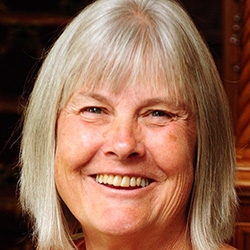

Search Results: longing
-
Read how an American Buddhist NVC teacher with Jewish roots reflects on how any dehumanization in the Israel-Hamas conflict can be used to justify all kinds of violence that can escalate for generations. With acknowledgment of the complexities, his desire is for us to bring in respect, dignity and peace -- for both Israelis and Palestinians. He emphasizes compassionate advocacy of all humanity amid the ongoing crisis.
-
The human species is trained and habituated towards separation. This model encourages humans to either give up on their needs or fight for their needs. In this short video, Miki shares how increasing capacity shifts habits of separation and supports holding of all needs.
-
Use this exercise to identify what state you're in at any moment, and as an exercise to grow capacity for self-awareness and self-compassion. Identify what happened, thoughts, sensations, feelings, longings, etc. Includes a table that outlines three states of being: Protective/Defensive, Vulnerability, Essence.
-
Read here about patriarchy as a system, its impact on men and women, how its rooted in separation and control, leading to dominance and submission. Under patriarchy, even men are brutalized. Instead, we can embrace nonviolence to challenge patriarchy and its offspring (eg. capitalism, child trafficking, etc). And to make a lifelong commitment to undo socialization, act within our influence, and work towards liberation of all.
-
Sylvia Haskvitz shares NVC basics to help you improve understanding and connection in communication.
-
Ask the Trainer: The link between storytelling, being "right," and connecting to an unmet need.
-
Ask the Trainer: Share a list of request types, examples, and a strategy for formulating them.
-
Trainer Tip: We may communicate indirectly when we worry about hurting someone’s feelings. Instead, commit to being direct with compassion, love, honesty, and respect to both yourself and others. They may not enjoy what you say, but at least they'll know where you're coming from. Being true to yourself, you can be true to your relationships. And it can build trust.
-
This anecdote illustrates how a young man had the social awareness to consider how male conditioning may bring up competitiveness in his interactions with another man. The young man offered transparency and checked for consent in a way that shows an embodiment of power-with, togetherness, consideration, care, collaboration... and all without displaying any formal NVC training, and without looking to impress.
-
Ask the Trainer: Get ideas to help your girlfriend accept you aren't responsible for her feelings.
-
In our internal conversations, some voices dominate others, which can leave us feeling fragmented or overwhelmed. But when we dive beneath the surface and really listen to our many parts, we connect vulnerably to our full humanity.
-
During this very moving session, you'll dive into Robert's exercises for supporting connection to your true self as opposed to your conditioned self.
-
- Learn concrete tools for engaging with others as you embrace individual and collective liberation
- Find your own source of choice even in the face of challenges
- Release the constriction of scarcity
- Find an empowered option to respond to what is happening in our world
- Open the door to the possibility of thriving rather than merely surviving
-
"Falling out of love" is a misleading concept that can lead to feelings of helplessness in relationships. The initial intense phase of love gradually gives way to the need for intentional effort and communication. Unrealistic relationship expectations can erode connection, causing the perception of falling out of love. To address this, we can ask key questions and seek clarity to attend to unmet needs and maintain a healthy connection.
-
This exercise brings forth presence, awareness, and witnessing regarding what you observe. And also the inner form of experiencing: thinking, feeling, sensing, longing, and noticing any inner resistance. This exercise is designed to allow self-compassion to clear the inner space, and to help you feel it as a flow of energy, presence to the other, and bring in a more relaxed experience and more availability to vulnerability.
-
- Learn, practice, and integrate the basic components of NVC
- Understand how to use observations, feelings, needs, and requests
- Grow your communication skills and strengthen your relationships
- Discover how to express yourself honestly and authentically!
-
What have you lost this year during this COVID-19 pandemic? Are you grieving too? Recognition of loss can helped contextualize our emotions. When we can meet grief with understanding, patience and tenderness, when we create space to mourn our losses -- and to begin to process, heal and metabolize loss. This can help us make sense of change and orient to a new reality. Grief is a longing for what we love.
-
Ask the Trainer: Guidance for NVC groups on when and how to make requests, especially negative ones.
-
Trainer Tip: Giving up on blame and taking responsibilty for our choices is immensely empowering. Mary offers a tip for growing in this direction.
-
Trainer Tip: Mary offers 3 foundational tips for making requests: positivity, specificity and doability.

Quick Links
Subscription Preferences
Stay In Touch!
Looking for ways to keep up with NVC Academy news, get special offers, free resources, or words of inspiration? Here are five ways to stay engaged:



















